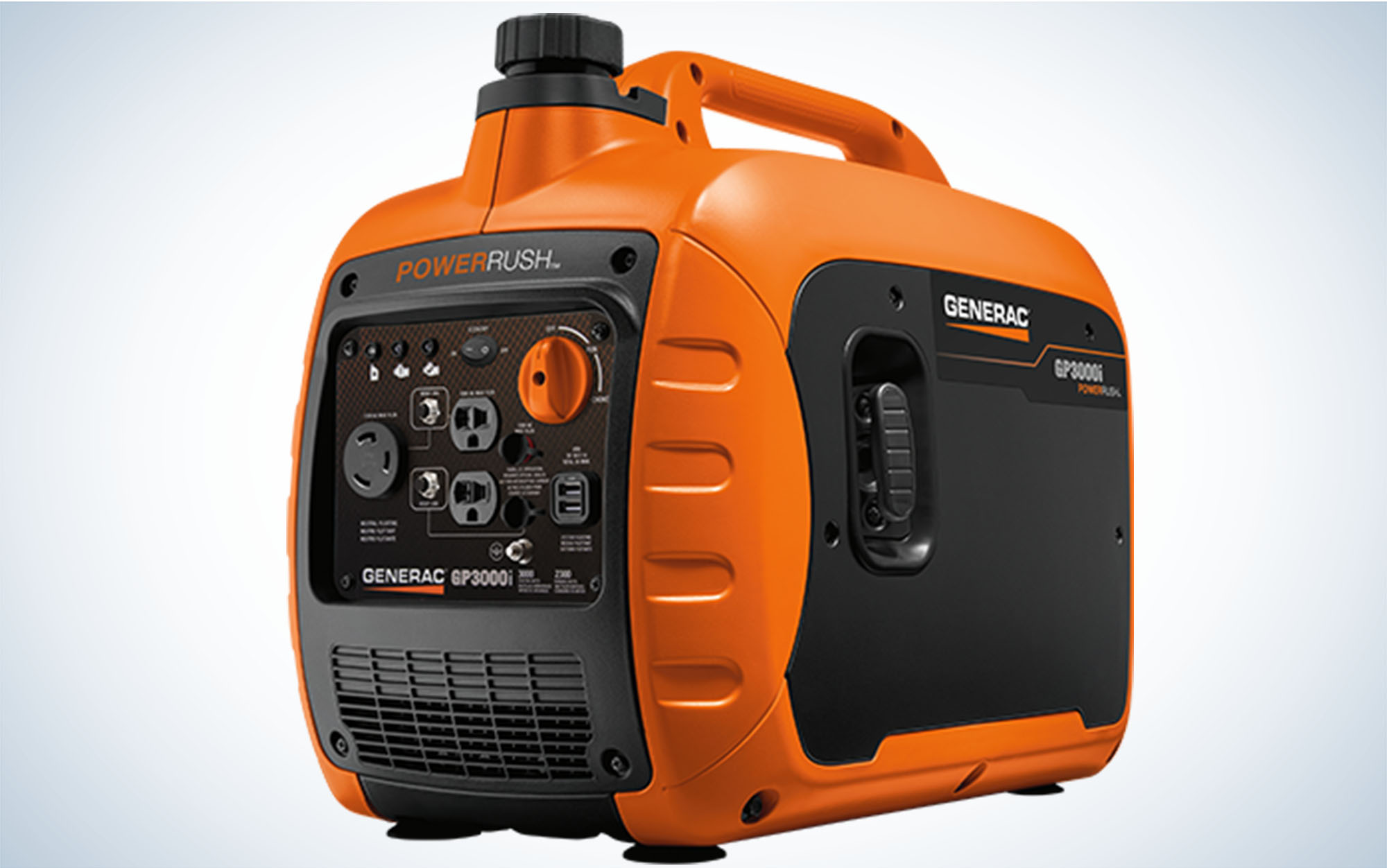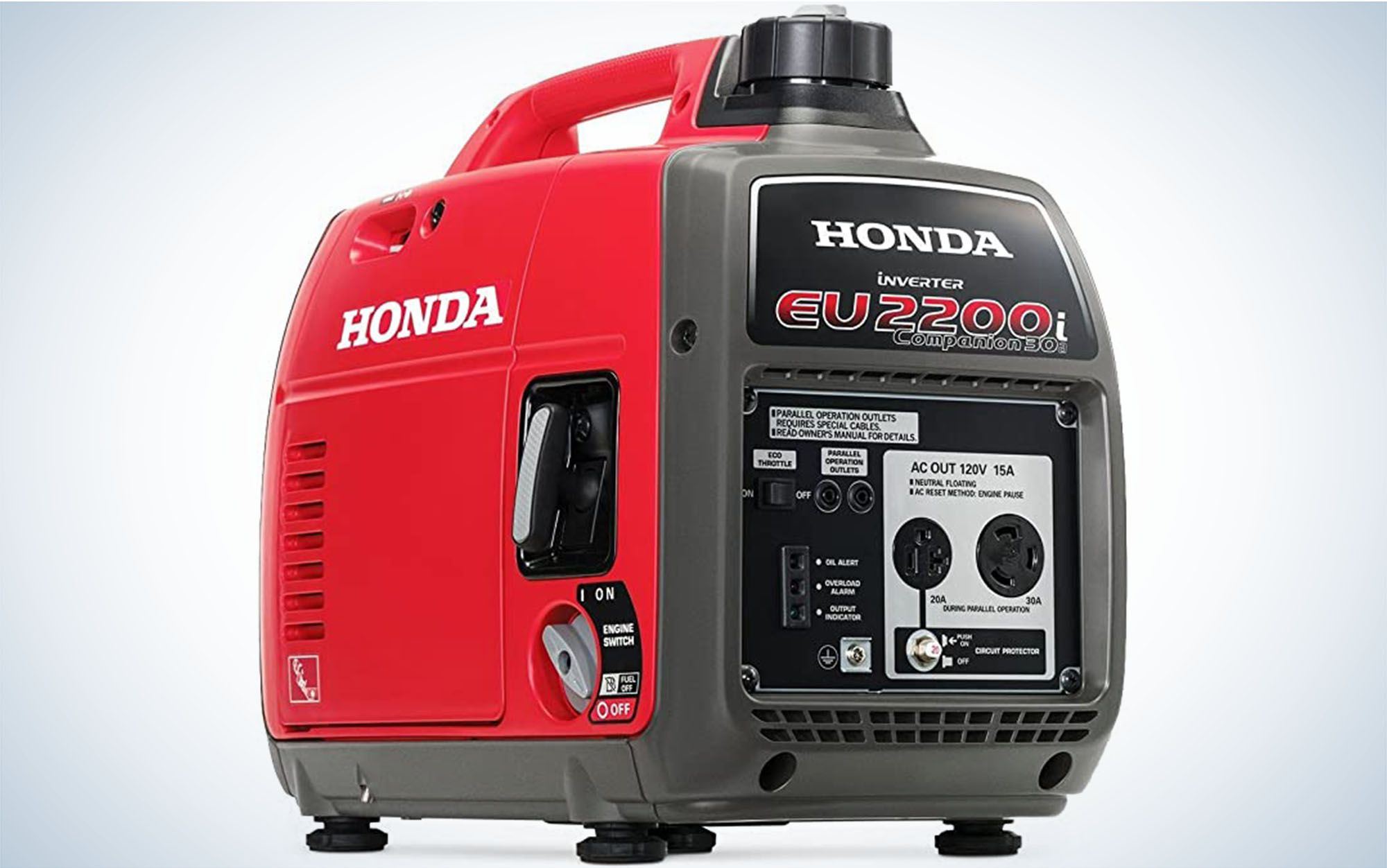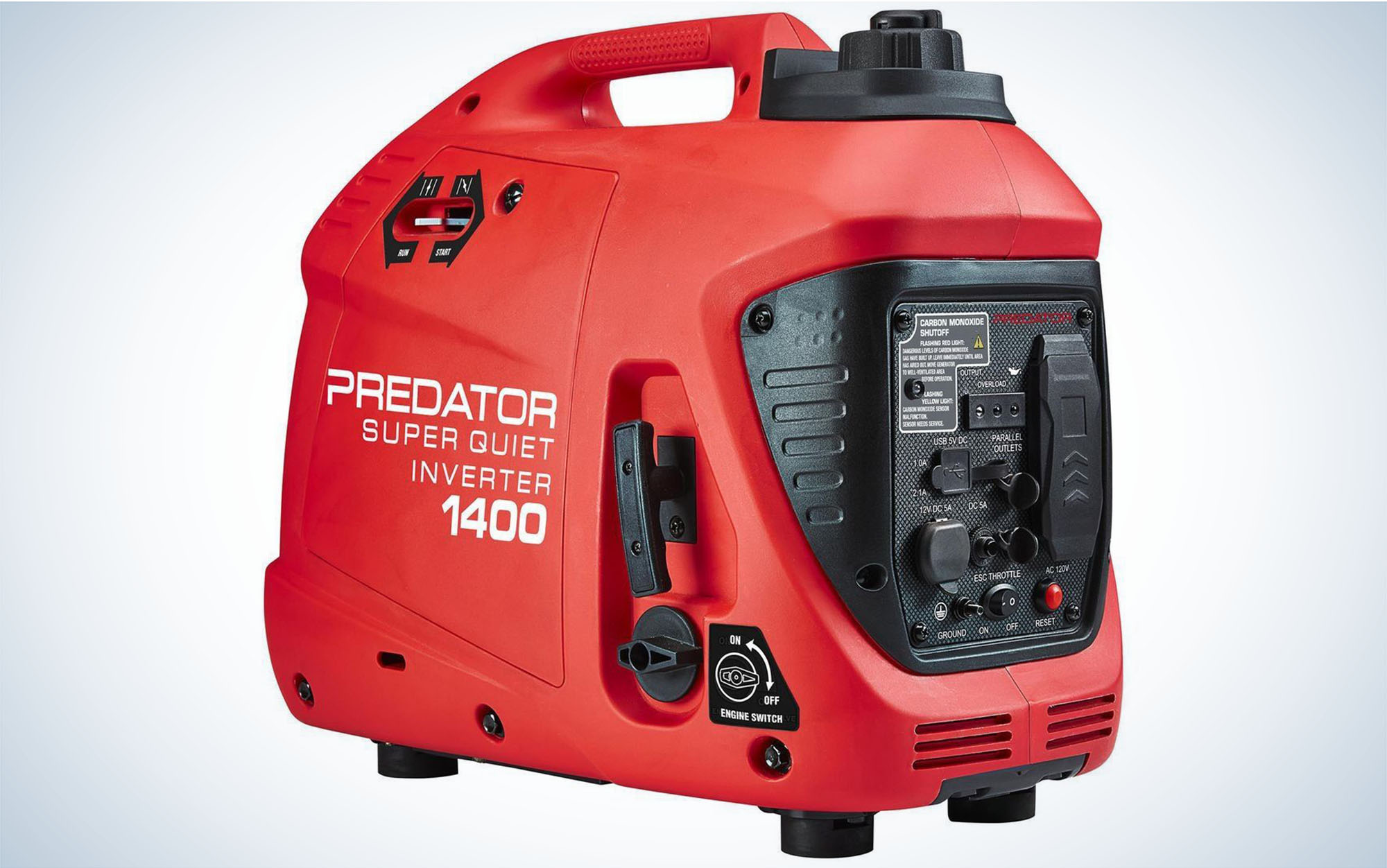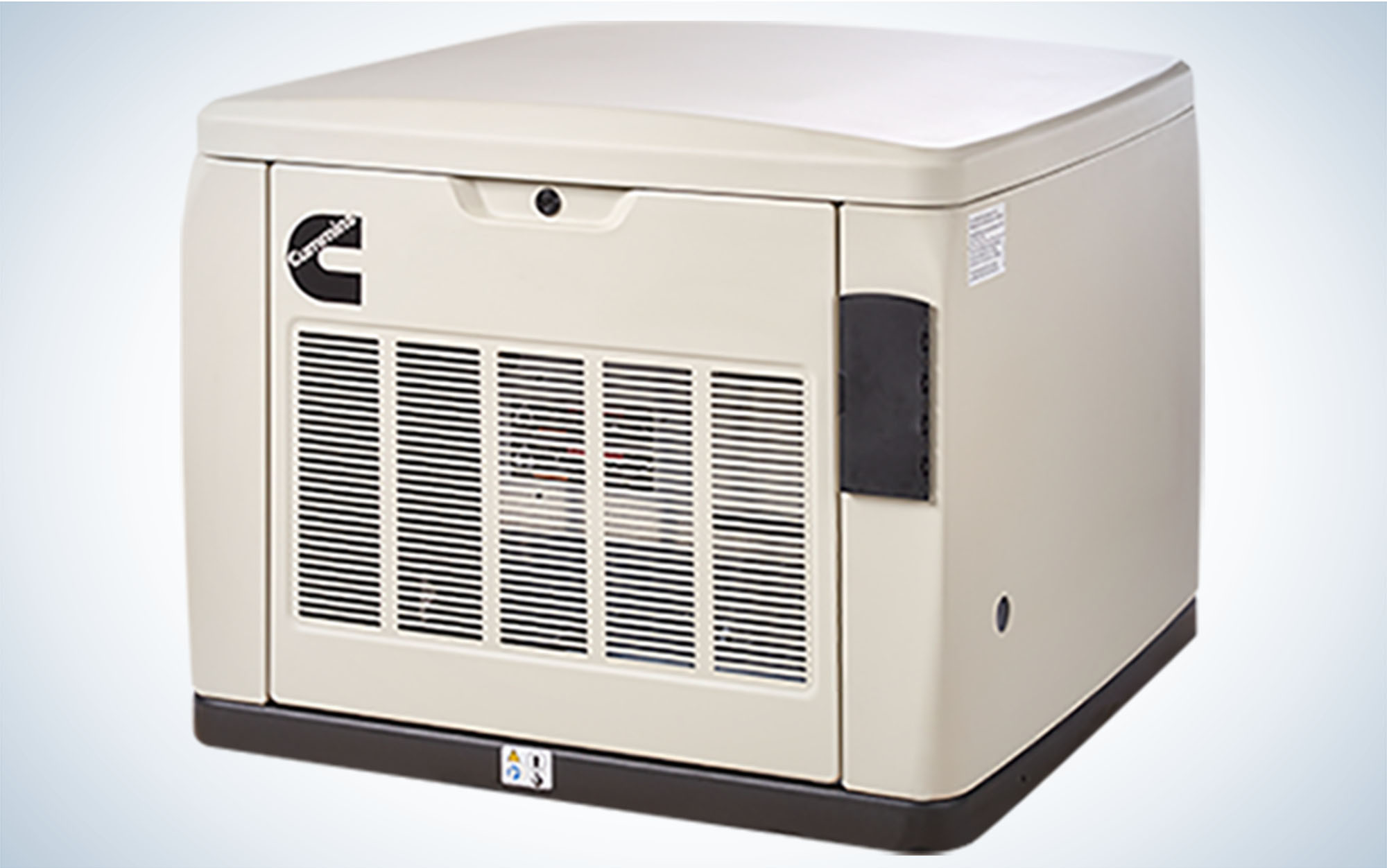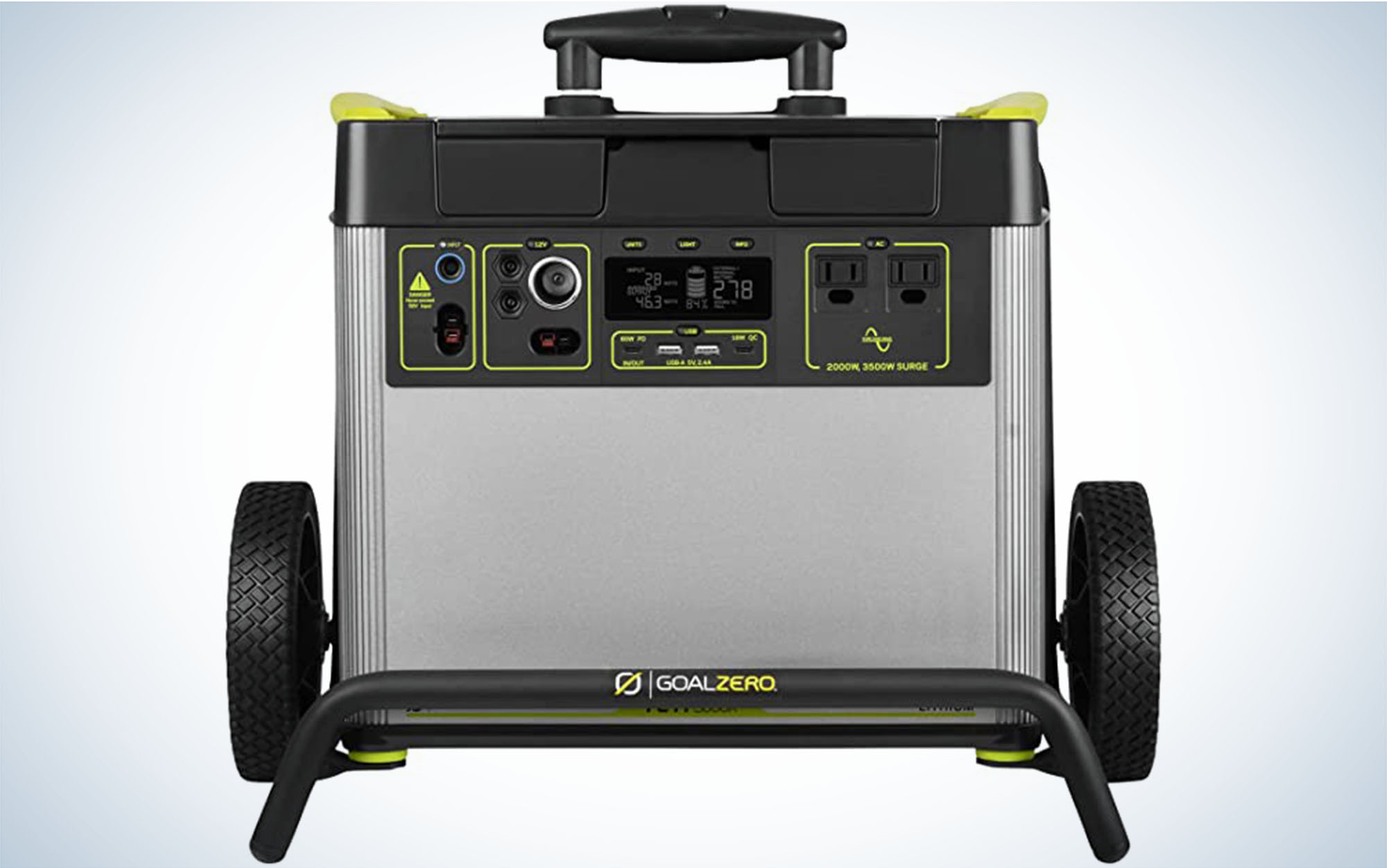We may earn revenue from the products available on this page and participate in affiliate programs. Learn More ›
Published Mar 27, 2023 3:47 PM
A few years back, inverter generators might have seemed like something people only needed in cold, snowy regions. Even there, they started out as luxury items that few people actually owned. That’s no longer the case, though, and buying one of your own could save you from serious problems. Portable inverter generators are also a great way to power your campsite or charge battery-powered tools while you work.
There are a lot of inverter generators to choose from, so I dug into the various makes and models available to find the best options for a few different categories. Buying one usually isn’t a small investment, so making an educated decision is important. We took the leg work out of finding the best inverter generators so you can focus on a few great options and know that you’re getting a quality item.
How We Chose the Best Inverter Generators
Inverter generators are a step up from conventional generators. By automatically adjusting power output to match demand, they’re quieter, more efficient, and safer for your electronic devices. Still, not all products are equal in terms of performance, reliability, features, and value.
I’ve relied on a fuel-burning or solar generator more times than I care to remember, so I’ve seen what works and what doesn’t. For this guide, I took a look at some of the best brands out there and compared power output, the number and type of outlets, the type of fuel required, consumer feedback, and — as always — price.
Everyone’s needs are different, so I tracked down great inverter generators ranging from portable options for your campsite or power tools to permanent power stations that can take your entire home off-grid if the need arises. My research took me to manufacturer manuals, forums, online reviews, and my own hands-on experience. The best inverter generators that are good enough to make this list are worthwhile investments that will have your back when you need them most.
Best Inverter Generators: Reviews & Recommendations
Best Overall: Honda EU7000is
Key Features
- 5,500 running watts (7,000 surge watts)
- 263 pounds
Pros
- Extremely reliable and well-built
- Quiet and efficient gas-powered engine
- Compatible with Honda’s My Generator app
- Best for home backup and RV camping
Cons
- Expensive, even for its size
- Heavy
When you need to fire up your generator, the only thing worse than it failing to start is finding out that it can’t produce adequate power. With the Honda EU7000is, you should never have to worry about either of those problems. Honda’s small engines are just as reliable as the brand’s cars, and this home backup generator is strong enough to power multiple appliances or your RV.
The 389cc engine generates 5,500 running watts and 7,000 surge watts. Using fuel injection instead of a carburetor, it can run for 16 hours on the 5.1-gallon tank at a 25 percent load. You’ll be able to power things like a full-size refrigerator, a gas- or oil-burning furnace (yep, those still need electricity), and lights. The EU7000is has wheels, but you’ll still want to keep it on paved surfaces because it weighs 263 pounds.
Aside from the workout of rolling this generator out of the garage and into the driveway, Honda made it very user-friendly. You can start it with the push of a button, control it with an app, and monitor its fuel level with a gauge instead of opening the tank every time. Safety features like circuit breakers, GFCI outlets, automatic carbon monoxide shutoff, and warning lights take the stress out of using this generator.
The EU7000is is a significant investment even before wiring your house for it, and it’s even more expensive than a lot of comparably sized inverter generators. But it’s also built to an incredibly high standard and comes with a bunch of features that make it easy to use. In the long run, you’ll be glad you spent a little extra. If you really want to set yourself up right, buy this for your home or RV and something small like the Jackery Explorer 300 for life on the go.
Best for RV Camping: Generac GP3000i
Key Features
- 2,300 running watts (3,000 surge watts)
- 60 pounds
Pros
- Quiet operation
- Can run in parallel with another GP3000i for double the power
- Safe to use with sensitive electronics
- Best for powering select appliances or a campsite
Cons
- Can be cumbersome to carry, especially with a full tank
- Underpowered for home backup
The Generac GP 3000i is a versatile inverter generator that’s perfect for powering a few electronics while you’re RV camping. It’s light enough for one person to carry, but still powerful enough to handle certain appliances in addition to your personal electronics. When my neighborhood lost electricity for a few days one summer, I used a GP3000i to run my chest freezer long enough to save about a hundred pounds of meat from spoiling.
The heart of this inverter generator is a 149cc engine that generates 2,300 running watts and 3,000 surge watts. Its 1.06-gallon tank will run the engine at 50 percent capacity for 4.5 hours. One person can move this 60-pound generator by its carrying handle, but it can be a little cumbersome. Plan on storing it someplace where you don’t have to carry it very far to use it. The system is simple and reliable, but Generac includes a three-year residential use warranty, just in case.
Using the Generac GP3000i is simple and straightforward. Start-up and shut-down graphic instructions are clearly printed on the top of the housing. The pull starter is more labor-intensive than electric ignition, but it’s incredibly reliable and doesn’t require much effort. Even after sitting idle for months at a time, my GP 3000i starts within three or four pulls. A clearly marked dial switches between choke (for cold starts), run, and off. You can let the engine idle at a constant speed or switch on the economy mode to let it raise or lower engine speed to match the power demand from the outlets.
The GP 3000i is a little bit underpowered for home backup, but my experience proves that it can power select appliances in an emergency. Around the campsite, it’s just right. Having multiple outlet types—including two USB ports—makes it great for charging everything from a pellet smoker to your phone at the same time.
Best Compact: Honda EU2200i
Key Features
- 1,800 running watts (2,200 surge watts)
- 47 pounds
Pros
- Excellent build quality and quiet operation
- Can run in parallel with another EU2200i for double the power
- Small enough to bring with you on the go
- Best for powering the essentials
Cons
- Limited power output
- Expensive
If you just need to power a few small electronics, you can get by with a small inverter generator like the Honda EU2200i. This compact inverter generator is perfect for charging things like your phone, handheld radios, or power tools. It’s the right size for car camping or keeping on hand for short power outages.
The EU2200i uses a 121cc engine that’s good for 1,800 running watts and 2,200 surge watts. That’s adequate for all your small devices or something as large as a space heater. The tank holds just shy of a gallon of gas, but that should last between three and eight hours, depending on how much power you use. Honda generators are known for being extremely reliable and quiet, so this one should give you many years of use. At 47 pounds, it’s also one of the more portable options out there.
Honda designed this generator’s GXR120 engine with an automatic mechanical decompressor to make pull-starting it as easy as possible. Instructions are printed on the housing, and controls are color-coded. Even the oil filler tube is thoughtfully designed to minimize spills and make ownership painless.
There are less expensive generators of this size (or larger), but you have to keep an eye out for cost-cutting measures. Honda equipped the EU2200i with safety and convenience features that some manufacturers reserve for larger generators. This one automatically shuts off if carbon monoxide levels become unsafe or if the oil level drops too low. It’s also compatible with Honda’s My Generator app, which lets you monitor the EU2200i’s performance and power it down remotely.
Best Budget: Predator 57063
Key Features
- 1,100 running watts (1,400 surge watts)
- 33 pounds
Pros
- Light enough to carry with one hand
- Clean electric signal is safe for sensitive electronics
- Built-in protection against carbon monoxide, overload, and oil starvation
- Best for powering the essentials
Cons
- Limited power output
- Only holds 0.65 gallons of gasoline
Getting quality gear for a low price can be challenging; it’s often hard to tell what’s inexpensive and what’s just plain cheap. The predator 57063 is nothing fancy, but it’s earned a loyal following in consumer inverter generator reviews by offering a lot of bang for the buck.
You’ll only get 1,100 running watts and 1,400 surge watts out of this inverter generator’s little 54cc engine, but the tradeoff is an empty weight of just 33 pounds — the lightest of any generator on this list by a significant margin. That kind of power won’t keep many appliances operational, but it’s adequate for essentials like your phone, rechargeable flashlights, and GPS devices. Another upside is efficiency; the tiny engine sips gas so slowly that the 0.65-gallon tank can last up to seven hours at 25 percent load.
Predator keeps the price low with a manual choke and a pull starter. It still comes with a carbon monoxide safety shutoff and indicator lights for low oil, overload, and output. Sound levels are higher than some larger generators at an estimated 60 decibels, so you might have to be mindful of when and where you use it if you want to be a good neighbor at home or a busy campground.
Are there better generators out there? Absolutely — but not at this price. Anytime you can spend less than $500 on one of the best inverter generators with a manufacturer warranty, you’re getting a good deal. As long as the limited power capacity and a little extra noise don’t bother you, there’s no need to spend more.
Best Home Standby: Cummins QuietConnect Series
Key Features
- Multiple sizes to match your home size
- Stationary
- Professional installation required
Pros
- Capable of meeting immense power needs
- Intelligent Load Management matches power output to power demand
- Remote operation via an app
- Best for powering your whole home
Cons
- Extremely expensive to purchase and install
- Not portable
- Requires a concrete pad
If you want your whole home to have uninterrupted power regardless of what happens to the electrical grid, you’re going to need a heavy-duty power source. For that, check out the Cummins QuietConnect series of natural gas and liquid propane inverter generators. These heavy-duty generators tap into your home’s power supply to keep everything operational as long as you have fuel to feed it.
A range of sizes is available in the QuietConnect line of residential home backup generators. Because these are such sizeable investments, you’ll need to schedule a free on-site assessment to pick the right one for your needs and make sure your home is ready to work with your new generator. These require a concrete pad or some other kind of stable platform and professional installation. They’re also semi-permanent, like an outdoor air conditioning unit.
Installation is involved and expensive, but after that, it’s smooth sailing. These generators automatically turn on and take over as soon as the grid stops supplying your home with power. They run efficiently, and you can monitor your generator’s performance from your phone. Just like other inverter generators, these will automatically adjust engine speed to provide adequate power without wasting fuel.
Many consumers and professionals agree that Cummins’ generators set the standard for durability and longevity. If you’re familiar with the engines Cummins builds for trucks, this won’t come as a surprise. You’ll probably spend around $10,000 to get one of these up and running, but the peace of mind you’ll get in return is hard to beat.
Best Solar Generator: Goal Zero Yeti 3000X
Key Features
- 2,000 running watts (3,000 surge watts)
- 78 pounds
Pros
- Charges from the sun with solar panels
- Silent, zero-emissions operation
- Connects to expansion batteries for more storage capacity
- Best for home backup or RV camping
Cons
- Charging requires sunlight or an outlet
- Far more expensive than a comparable fuel-burning generator
If you want to look beyond the usual fuel-burning generators, the Goal Zero Yeti 3000X is one of the best power stations you can buy right now. It’s powerful enough to run appliances during a power outage or at an RV campsite, reasonably portable, and produces no emissions, so you can use it silently — even indoors.
The lithium-ion battery in the Yeti 3000X provides 2,000 running watts and 3,000 surge watts. That’s enough to power a full-size refrigerator or CPAP machine for nearly two days on one charge. You can charge the Yeti 3000X using solar panels, a wall outlet, or your car. Goal Zero offers solutions to integrate this power bank into your home’s electrical system for seamless home backup, and you can add expansion batteries for longer-lasting power.
Charging a battery takes more time than filling a fuel tank with gas, so you do need to plan ahead and keep the Yeti 3000X topped off. Aside from that, this is as easy as it gets. There’s no fuel to spill, no engine to maintain, no noise, and no exhaust gasses. You could put this generator in your bedroom to run an air conditioner or heater while you sleep if you want. It’s pretty hefty at 78 pounds, but it does come with a rolling stand.
There are times when fuel-burning generators are still your best bet — particularly if you live in a northern region with limited sunlight during the winter months. Solar generators like this are also several times more expensive than comparable internal combustion alternatives. Still, if you get lots of sunlight or can plan ahead to keep the Yeti 3000X charged, it’s extremely convenient.
Read Next: Best Solar Generators
How to Choose the Best Inverter Generator
Power capacity
The first step in choosing an inverter generator is figuring out how much power you need. Look for labels on the appliances and devices you want to use, and add up the power ratings to get an idea of how much electricity you’ll likely consume per hour.
Portability
Inverter generators that are capable of powering your home will be far too big and heavy to take on the road. If you want to bring your inverter generator camping to power an RV or a few small devices, there’s no need to take on extra weight and expense.
Fuel
Not all inverter generators require the same fuel. The best inverter generators for you might burn gas, propane, diesel, or natural gas. Some generators can burn more than one type of fuel.
Manufacturer support
Inverter generators are typically very reliable, but they’re still machines that will require maintenance eventually. If you ever need more than routine generator maintenance that you can do at home, being able to call a trained technician or order OEM parts can save you from having to replace the whole thing.
FAQs
Q: Why do I need an inverter generator?
If it seems like power outages have become more of a problem in recent years, you’re right. Severe weather events are causing an increasing number of households to go without electricity, and the problem isn’t just affecting northern states with traditionally harsh winters.
In 2021, more than 4.5 million Texans lost power due to a winter storm. Thanks to strains on its electric grid, California commonly runs low on power even when the state isn’t dealing with a winter storm, wildfire, or flooding. It’s important to have a backup power source for emergencies.
Q: How is an inverter generator different from a normal generator?
Conventional generators run at a constant speed and produce the steady power output. The electrical current can vary, though, which isn’t good for some sensitive electronics. Old-school generators will still get the job done in most cases, but they may not be the best generator for you.
Inverter generators automatically adjust engine speed depending on demand to get the most out of each gallon of fuel. They also deliver a cleaner electrical current than conventional generators by generating it in AC, converting it to DC, and finally converting it back to AC to create a cleaner and more consistent current. If you have the option to choose between a generator and an inverter generator, the inverter generator will be quieter, more efficient, and more modern.
Q: How much power do I need from my inverter generator?
To determine which size of generator you should buy, start by identifying the devices and appliances you want your inverter generator to power. Check the label near the power cord to see how many peak watts each uses. Add those up to get the total number of watts you need and look for a generator with the same rating or greater.
Keep in mind that some appliances have one rating for general operation and another during startup; this is called surge power. For example, a refrigerator may require several times its normal operating power when you first turn it on.
It’s better to have too much power than not enough, but don’t get carried away. Generators create electricity but they can’t store it. If you don’t use or have a power station to store excess power, you’re just burning gas (and money) while getting nothing in return.
Q: Are solar generators better than inverter generators?
Solar generators can be a fantastic alternative to fuel-burning generators if you live someplace with lots of intense sunlight. They produce no fumes or sound, making them great for use indoors or at quiet campsites.
Solar panels struggle in cloudy climates, where you’re likely to draw more electricity per day than the panels can replace. They’re also very expensive compared to generators that use internal combustion. So which is best? That’s for you to decide.
Final Thoughts on the Best Inverter Generators
Power outages can impact you regardless of where you live. Besides being a cheap form of insurance, an inverter generator can also keep you powered up when you go RV camping or need to work in a remote location. The Honda EU7000is is the best inverter generator. If you’re on a budget or need to be more mobile, the Generac GP 3000i is a solid choice.
No matter which inverter generator you pick, make sure to stay on top of the maintenance schedule, exercise it by letting it run for a few minutes from time to time, and be aware of how much load you can place on it.

